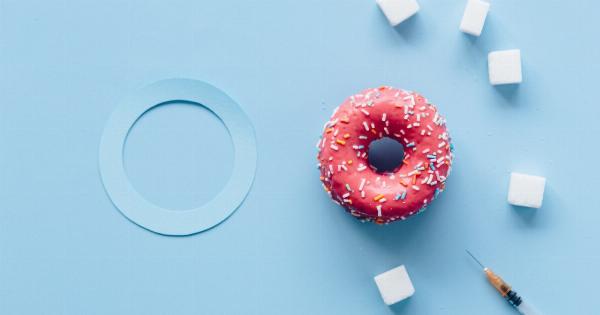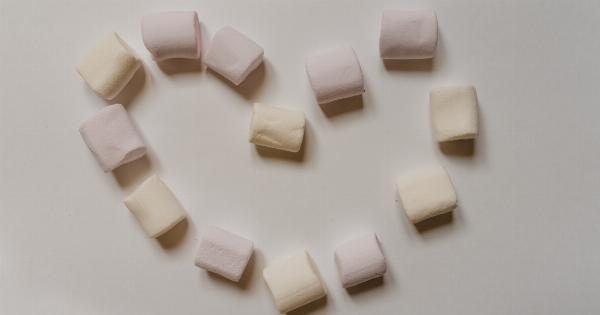Cholesterol is a waxy substance that is found in all cells of the body. It is important in the production of hormones, Vitamin D, and digestive juices.
However, high levels of cholesterol can lead to a number of health problems, such as heart attack, stroke, and other cardiovascular diseases. There are many ways to reduce high cholesterol levels; one of the most effective ways is through proper diet. In this article, we will discuss some tips to help you reduce your cholesterol level through diet.
1. Increase your fiber intake
Dietary fiber is very essential for the body as it helps in the reduction of low-density lipoprotein (LDL) or “bad” cholesterol levels. Foods that are rich in fiber include whole grains, fruits, vegetables, legumes, nuts, and seeds.
Soluble fiber, which is found in oatmeal, beans, nuts, and fruits, can also help to reduce cholesterol levels by binding to cholesterol in the gut and removing it from the body.
2. Limit Saturated Fats
Foods that are high in saturated and trans fats can raise your LDL cholesterol levels. These fats are usually found in animal products such as meat, butter, and cheese.
They can also be found in some plant-based oils such as palm oil, coconut oil, and cocoa butter. Limit your intake of these fats by choosing lean meats, low-fat dairy products, and using healthier oils like olive oil, canola oil, and vegetable oil.
3. Add Fish To Your Diet
Eating fish is a great way to get some heart-healthy omega-3 fatty acids in your diet. These fatty acids are useful in reducing triglycerides, a type of fat that increases the risk for heart diseases.
Fatty fish, such as salmon, sardines, and tuna are good sources of Omega-3. If you don’t like fish, you can get Omega-3 from seeds such as flaxseed and chia seeds.
4. Cut Back On Processed Foods
Processed foods contain high levels of salt, sugar, and unhealthy fats. These foods can increase your cholesterol levels and lower your good cholesterol (HDL) levels.
Limit your intake of processed foods by choosing fresh fruits, vegetables, and whole grains. It’s also a good idea to prepare your meals at home since restaurants often use processed foods in their dishes.
5. Eat More Plant-Based Proteins
Plant-based proteins like legumes, nuts, and seeds are beneficial to the heart as they are low in saturated fat and high in fiber, minerals, and vitamins.
They can play an important role in reducing your cholesterol level by lowering LDL cholesterol levels. Some good plant-based protein sources include lentils, beans, chickpeas, chia seeds, almonds, and peanuts.
6. Stay Hydrated
Drinking enough water is important to maintain healthy cholesterol levels. Water helps to flush out toxins from the body, including cholesterol. It also helps the liver to function at its best, which is necessary for removing cholesterol from the blood.
So, drink at least 8-10 glasses of water every day, and avoid sugary and caffeinated drinks.
7. Avoid High Cholesterol Foods
Avoiding foods that are high in cholesterol can help in the reduction of your cholesterol levels. High cholesterol foods include egg yolks, organ meats, and shellfish.
You should limit your intake of these foods, and if you do decide to eat them, choose leaner cuts of meat and poultry without skin.
8. Choose your cooking methods wisely
Cooking methods can also affect the cholesterol levels in your food. Frying food in unhealthy oils can lead to the production of trans fats that can raise your cholesterol. Try to use healthier cooking methods like steaming, boiling, or grilling.
If you must fry, use healthy oils like olive oil, avocado oil, or grapeseed oil.
9. Incorporate Spices Into Your Cooking
Some spices, like garlic and turmeric, have been shown to help lower cholesterol levels.
Garlic helps to reduce LDL cholesterol levels by preventing its production in the liver, while turmeric has a compound called curcumin that can help to reduce total cholesterol levels. Try to incorporate these spices into your diet for flavor and health benefits.
10. Exercise Regularly
Finally, exercising regularly, along with a healthy diet, can help to reduce your cholesterol levels. Exercise helps to increase your HDL and reduce your LDL cholesterol levels. It also helps to maintain a healthy weight which is crucial for heart health.
Aim to get at least 30 minutes of moderate exercise 5 days a week. You can start with simple activities like brisk walking or cycling.





























